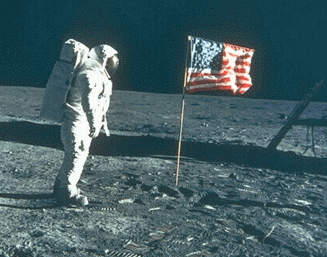The Origin of the Phrase “Pipe Dream”
 Today I found out the origin of the phrase “pipe dream”, meaning “a fantastic hope or plan that is generally regarded as being nearly impossible to achieve.”
Today I found out the origin of the phrase “pipe dream”, meaning “a fantastic hope or plan that is generally regarded as being nearly impossible to achieve.”
This phrase first popped up in the 19th century, with the earliest known documented case coming from Chicago, Illinois; specifically, coming from the December of 1890 issue of the Chicago Daily Tribune, in this case referring to aerial navigation: “It has been regarded as a pipe-dream for a good many years.”
Yet another reference in Chicago, in September of 1895, demonstrates the true origin of phrase in terms of meaning, namely, as a reference to the dreams experienced when smoking opium. This September of 1895 reference is from the Fort Wayne Gazette:
Bonus Facts:
- “Pipe Dream” isn’t just a commonly known phrase, it is also a less commonly known musical by Rogers and Hammerstein, which premiered November 30th, 1955 and closed just eight months later, making it the shortest run (245 performances) of any Rodgers and Hammerstein show and was somewhat a flop by their normal standards. The title was chosen as a play on words in the fact that the lead female character ends up living in an old boiler pipe.
- Due to the fact that the main character of Pipe Dream lived in a pipe, Jim Henson, in 1989 shortly before his death in 1990, considered producing a version of the musical in film form with Muppets. This idea was later abandoned.
- Julie Andrews auditioned for Pipe Dream, but was turned down, not because she wasn’t preferred for the role as the lead, but because Rodgers thought she’d be better off trying out for My Fair Lady. Her portrayal of Eliza Doolittle in My Fair Lady was what initially propelled her to stardom. Specifically, due to her outstanding performance in My Fair Lady, Rodgers decided to cast her in the Rodgers and Hammerstein TV musical Cinderella, which was broadcast to over 107 million viewers in 1957.
- Despite this, in 1960, Jack Warner, an executive at a movie studio that was producing a film version of My Fair Lady, dropped Julie Andrews as he felt she lacked sufficient name recognition. This opened up an opportunity for Andrews to play the lead in Disney’s Mary Poppins, which she actually initially turned down because of being pregnant, but Disney insisted and waited for her. Andrews subsequently won both the Academy Award and Golden Globe award for Best Actress for that role. She also won a Grammy Award, along with her fellow actors, for best Children’s Album. As a not-so-subtle jab at Jack Warner, who had said she lacked “name recognition” when he rejected her from the film version of My Fair Lady, she closed her Golden Globes award for Best Actress speech with “And, finally, my thanks to a man who made a wonderful movie and who made all this possible in the first place, Mr. Jack Warner.”
- “Operation Pipe Dreams” was a 2003 nationwide United States investigation which targeted business selling drug paraphernalia. In the end, hundreds of businesses and homes were raided nationwide. Fifty-five people were charged with trafficking of illegal drug paraphernalia and eventually fined and generally given home detentions. The estimated cost of the operation was around twelve million dollars or about $220,000 per person charged and about 2,000 officers involved or about 36 officers per charge.
- Actor Tommy Chong was particularly hurt by this sting due to financing and promoting Chong Glass Works/Nice Dreams, which was started by his son and produced over 100 hand blown pipes a day. Nice Dreams had a policy of not selling to shops where it would be illegal to do so. However, federal agents under the guise of shop owners in those states where it would be illegal to sell to entrapped Chong’s son by continually contacting him and trying to get him to sell to them. He initially refused, but eventually they sweetened the deal enough and he agreed to sell, at which point charges were filed. Tommy Chong eventually agreed to a plea-bargain that made it so neither his son Paris, who had committed the illegal act, nor his wife would be charged. Tommy Chong was sentenced to 9 months in prison and fined $20,000 along with forfeiting $103,000. Prosecutors later admitted that they were much more severe with Chong than others charged due to the fact that his movies hindered “law enforcement efforts to combat drug trafficking and use.”
- The movies “Down Periscope” (1996) and The Wild Bunch (1969) are both officially called “Pipe Dreams” in many countries the world over.
*Note: this article was by request from a Today I Found Out reader. If there is anything you’d like to know or something you already know that you think is interesting and not commonly known, feel free to send me an email and if I think it’s something worth doing an article on, I’ll do the research and write an article on it.
Expand for References:| Share the Knowledge! |
|





I live in Chatsworth, Ca. five blocks from porno company PipeDreams. Now I know what it means. Thank you.